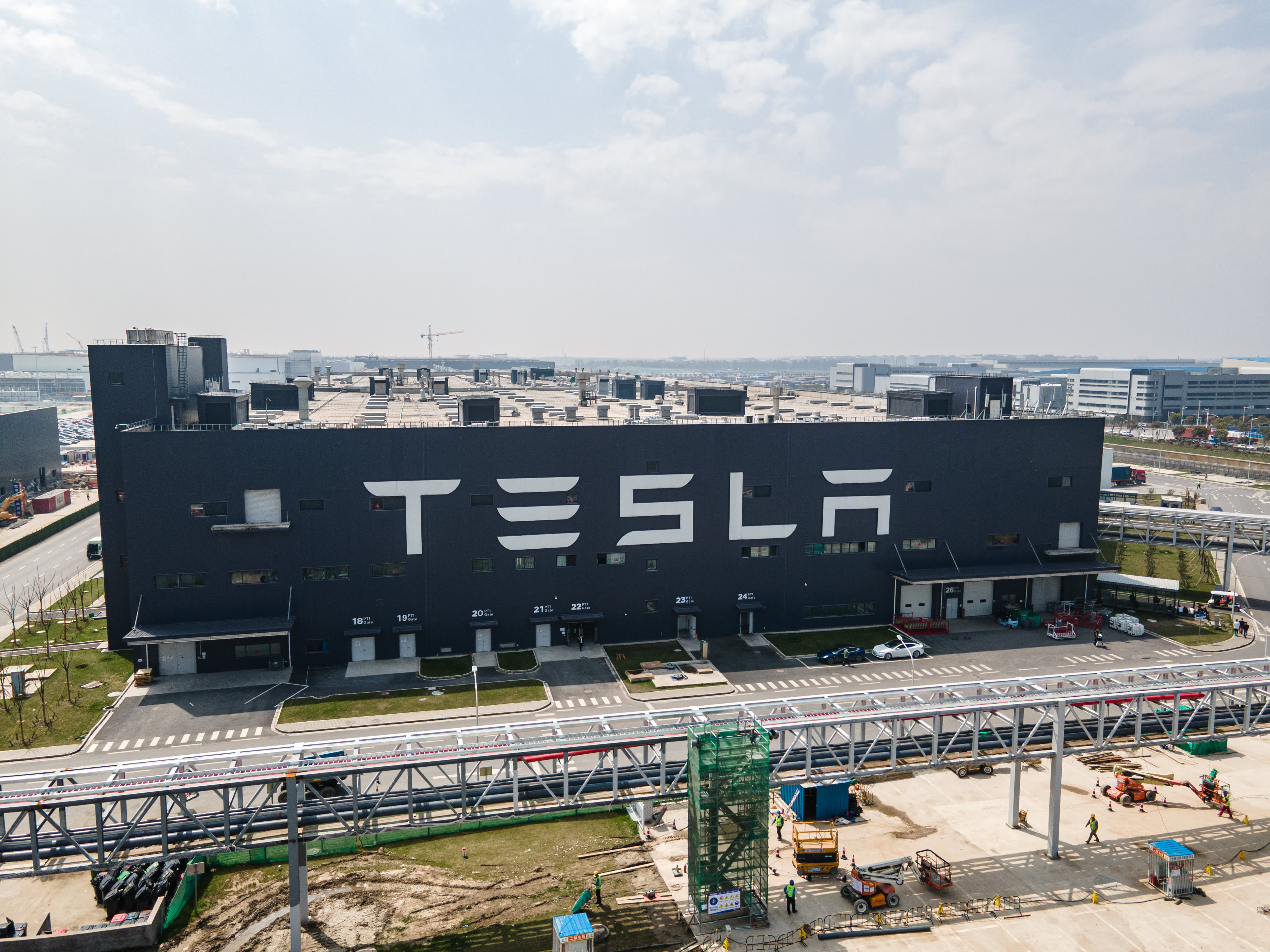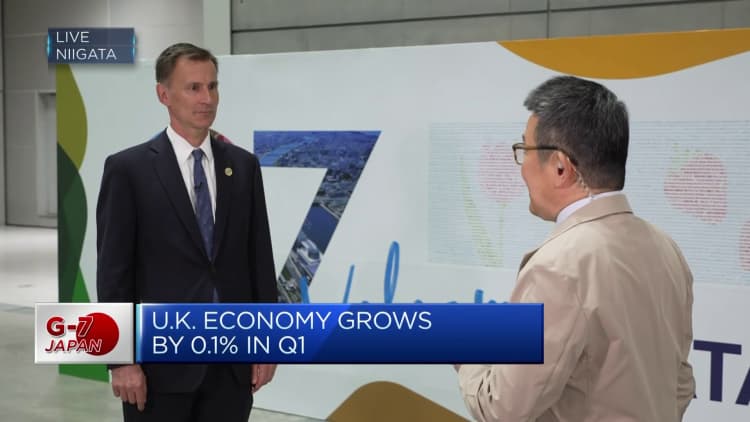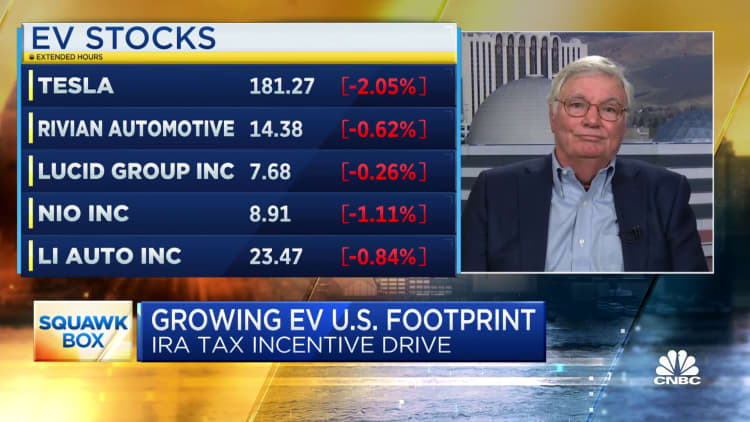Stellantis warns UK risks exodus of EV production under post-Brexit rules
Generic stock pictures of the Astra assembly line at Vauxhall’s plant in Ellesmere Port, Cheshire. Picture date: Tuesday July 6, 2021.
Peter Byrne – Pa Images | Pa Images | Getty Images
LONDON — Executives from Stellantis, the automaking giant behind brands including Peugeot, Chrysler and Citroën, are meeting with U.K. ministers Wednesday to warn post-Brexit trading arrangements severely risk its operations in the country.
Stellantis manufactures Vauxhall, Fiat, Opel and other vehicles across two plants in the U.K., employing more than 5,000 people. It plans to move both toward majority and then 100% EV production as it rolls out electrification across its brands.
related investing news


In a submission to a government enquiry into vehicle battery production, the company said it would be at a competitive disadvantage going forward because of tariffs due to be imposed on batteries transported between the U.K. and mainland Europe.
“If the cost of EV manufacturing in the U.K. becomes uncompetitive and unsustainable, operations will close,” it said, citing previous decisions by BMW Group to relocate electric Mini production to China, and investments by Honda in EV production in the U.S. following the closure of its U.K. site.
The EU–U.K. Trade and Cooperation Agreement gave battery and EVs a grace period before full Rules of Origin tariffs kick in, responding to these sourcing challenges. However, they will become progressively stricter in the coming years, rising to 45% and then 65% in terms of required domestic production. Automakers otherwise face 10% export duties on EVs.
Stellantis said that if it manufactures its batteries in China and mainland Europe in the coming years as currently planned, it would face “higher logistics costs” that would threaten the “sustainability of our U.K. manufacturing operations.”
The company warned the U.K. does not have a sufficient supply of the materials needed to support vehicle battery production. While this is also an issue in mainland Europe, with many supplies coming from China, Stellantis noted it had made significant investments in gigafactories in France, Germany and Italy and had a battery joint venture there.

It wants the government to negotiate with EU officials to maintain current rules until 2027.
It comes as the EU and its members ramp up its focus on EV production, with the formation of the European Battery Alliance and plans to loosen state aid rules around green manufacturing, in part in response to the U.S.’s landmark Inflation Reduction Act.
Earlier this week, French President Emmanuel Macron hosted Tesla CEO Elon Musk to try to court investment in the country.
The U.K. has made some progress on EV and battery production, with a large-scale lithium refinery planned for the north of England and Nissan building a battery gigafactory alongside a Chinese partner; but also instability, with battery maker Britishvolt narrowly rescued from administration earlier this year.
The committee hearing is its attempt to lay the path for the future of EV production in the country, alongside an Automotive Transformation Fund.
“We’ve been sleeping at the wheel when it comes to bringing battery plants to the United Kingdom,” Andy Palmer, former COO of Nissan and chair of EV battery manufacturer Inobat, told the BBC Wednesday.

Mike Hawes, chief executive of the Society of Motor Manufacturers and Traders, said the rules of origin for batteries posed a “significant challenge to manufacturers on both sides of the Channel, with the prospect of tariffs and price increases which discourage consumers from buying the very vehicles needed to achieve climate change goals.”
Matthias Heck, senior credit officer at Moody’s Investors Service, told CNBC many companies are seeking to establish EV battery manufacturing facilities near their automotive plants due to the complexity of auto industry supply chains, with many parts crossing international borders, sometimes several times.
This includes the likes of Stellantis in a joint venture with Mercedes-Benz and Total, Volkswagen and Tesla, Heck said. Meanwhile EU projects are benfiting from subsidies and local government support, as well as proximity to plants in France and Germany.
“In countries where this is not possible, automakers rely on battery imports at competitive prices and logistics cost. Otherwise, they might be unable to produce battery electric vehicles at costs which are competitive to imports from other countries.”
For all the latest Automobiles News Click Here
For the latest news and updates, follow us on Google News.

